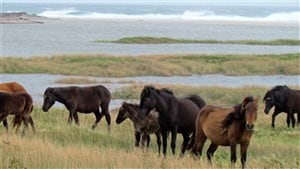The full team is back this week with Lynn Wojtek and Marc
Listen
A provincial court of appeal in Canada has dismissed an appeal by a group of homeless people to use Canadian human rights laws against the federal government and Canada’s most populous province of Ontario.
The groupThe group of homeless people, including Jennifer Tanudjaja, and the Centre for Equality Rights in Accomodation said policies and inaction in Ontario and the federal level led to high degree of homelessness, and/or inadequate housing.
In a decision released December 1, two of the three judges on the Ontario Court of Appeal panel agreed with a lower court judge “that it was plain and obvious that the application could not succeed”.
RCI’s Wojtek Gwiazda spoke to Leilani Farha about the ruling and what it means. She is the Executive Director of Canada Without Poverty, an organization working to eliminate poverty in Canada. She is also the United Nations Rapporteur on Adequate Housing.

Depending how you look at it, it’s either a tiny island, or giant sandbar in the Atlantic off the east coast of Nova Scotia. It’s also known as the graveyard of the Atlantic for the number of ships that have perished along its 30 km shores.
For over 200 years, wild horses have lived on the island. Some think they may be survivors of the shipwrecks.
A debate about the future of the wild horses has been on and off for decades, and now its back on again with callse saying the horses are an invasive species and should be moved off the island. Others say, they have become iconic to Sable Island and should be left alone.
Lynn spoke to Memorial University biologist Ian Jones about why he thinks the horses should be rounded up and taken off the island.

It may not surprise many that some Canadians think their politicians are unethical. Some researchers wanted to find out in more detail what exactly what kinds of things they thought made politicians unethical.
In a survey of Canadians they said they were surprised, shocked even, by the degree of distrust of politicians. In a high percentage Canadians thought that politicians often took bribes, favoured corporate interests over public good, used the positions to favour family and friends and so on.
The survey showed most Canadians thought that most people were not corrupt when they entered politics but became corrupted once they’d been in power for a period of time.
Chris MacDonald lead the research. He is an associate professor at the Ted Rogers School of Management, Director of the Ted Rogers Leadership Centre, and founding director of the Jim Pattison Ethical Leadership Programme, all at Ryerson University in Toronto, Ontario.







For reasons beyond our control, and for an undetermined period of time, our comment section is now closed. However, our social networks remain open to your contributions.